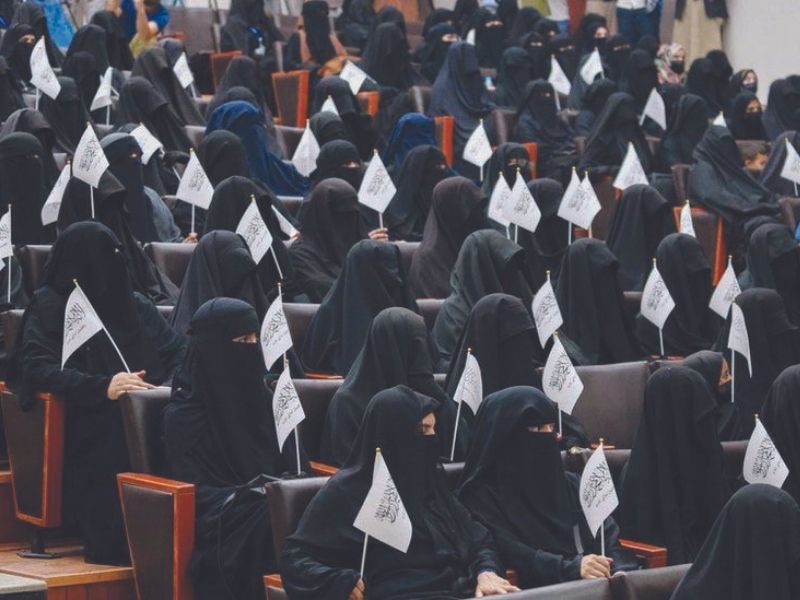Education activists and leaders are desperately trying to rescue Afghan scholars — particularly girls and women — from the Taliban, while experts warn that the country could lose the gains it has made in education, hard-won over the past 20 years. Almost immediately after the Taliban’s takeover of the country following the withdrawal of US forces on August 31, Afghan women reported they are being turned away from campuses and are burning university ID cards and degree certificates for fear of retribution.

Afghan varsity students: hard-won gains loss prospect
Although Taliban leaders say that women will be able to access education, there’s the caveat that it has to be under “the framework of our Islamic laws”. Afghanistan experts are sceptical about prospects of the country’s education reforms being sustained.
Comments Robert Crews, editor-in-chief of the journal Afghanistan and a history professor at Stanford University: “Afghan universities are in grave danger. As in the recent and more distant past, the Taliban will target professors, many of whom are already in hiding,” he says. “They will also likely exclude female students from higher education and will forcibly close many educational institutions.”
Crews adds that institutions focusing on technical education may fare better, but it will be difficult to staff them given “uncertainty about how the Taliban will treat them”.
Hamish de Bretton-Gordon, who previously served in the British Army in Afghanistan and is now a visiting fellow at Magdalene College, Cambridge, says the big question is “whether the leopard has changed its spots. The last time they were in power, the Taliban had no interest in academia. If one takes that view, then the prospects are disastrous. I hope I’m wrong.”
De Bretton-Gordon says it’s crucial to rescue Afghan scholars, something his own college is involved in doing. “There is so much knowledge in Afghanistan on a whole host of issues. The potential to lose that — and the potential for academic persecution if they stay — means that we should welcome them as refugees in this country,” he adds. A group of Afghan scholars with Chevening scholarships to study in the UK recently arrived in the country after the UK government made a U-turn on an earlier foreign office decision to “pause” their scholarships.
Scholars at Risk, which is based at New York University, has issued urgent appeals to the White House, European governments and the European Union. It calls on states “to secure the lives and careers of Afghanistan’s scholars, students, and civil society actors” through evacuation flights, legal pathways for visas and resettlement, and the establishment of dedicated national fellowships.
(Excerpted and adapted from The Economist and Times Higher Education)

























